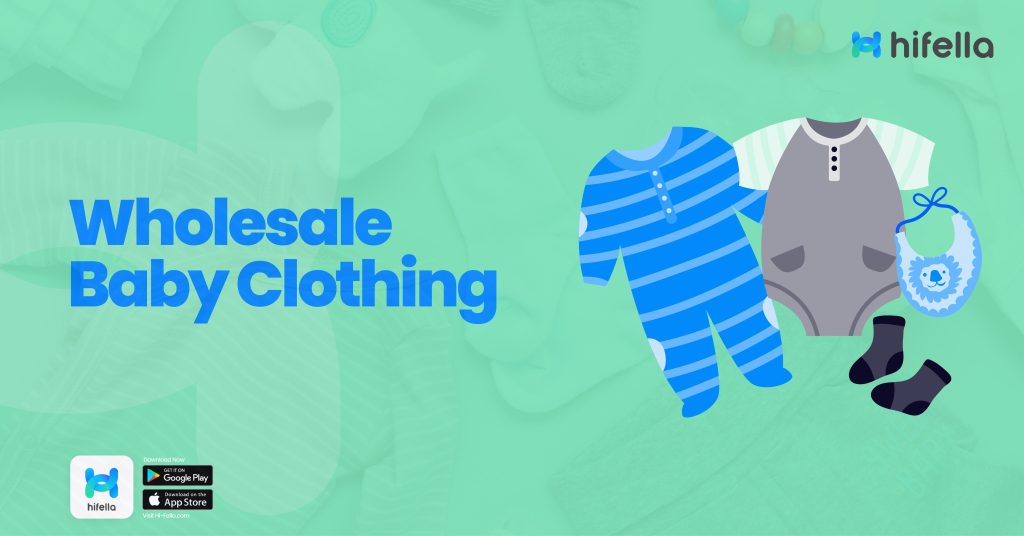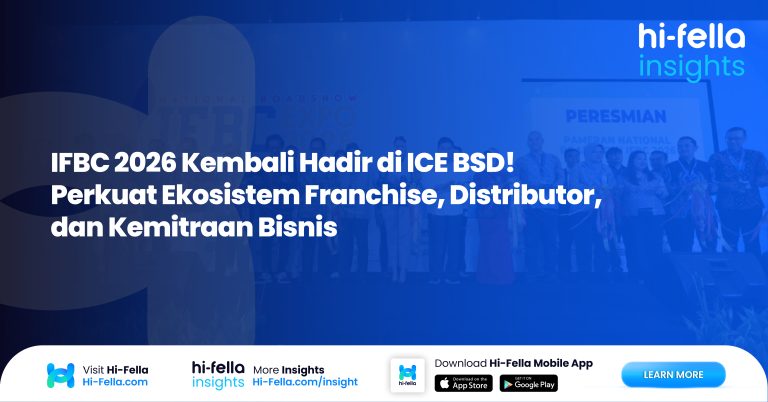Wholesale baby clothing suppliers are becoming increasingly popular globally. For baby store owners, upcoming baby clothes retailers, wholesalers, and individuals looking for reputable suppliers, finding the best wholesale baby clothes vendors is very important.
This article will show you the top 10 wholesale baby clothing suppliers, offering you the opportunity to get baby clothes with competitive prices and also several tips for choosing the right suppliers. Let’s take a look at the breakdown below!
The Top Wholesale Baby Clothing Suppliers List

Source: Anna in The House
1. AliExpress
As one of China’s largest wholesale platforms, AliExpress offers a wide selection of products, including baby clothes, with the benefit of shipping orders to almost every country in the world.
Specializing in providing competitive prices and a wide range of products, AliExpress appeals to retailers looking for affordability without the expense of variety.
Newborn baby clothing orders, in particular, enjoy the benefit of free shipping, making it an engaging option for those looking to purchase baby essentials from around the world.
2. Walmart
Walmart, a leading mass supplier in the US, offers a large selection of newborn baby clothes among other products, catering to the diverse needs of large and small-scale retailers.
With deliveries made within 2-7 business days, Walmart stands out for its efficiency and wide product range, including popular baby clothing brands such as Child of Mine, Crocs, and Gerber.
While specific MOQ information is not provided, Walmart’s scale and distribution capabilities make it a key source for retailers looking to purchase baby essentials.
3. Kiddies World
Kiddies World, founded in the UK in 1992, has made a name for itself as a premier wholesaler of baby and children’s clothing.
The company offers a diverse selection of high-quality clothing at competitive prices, meeting the needs of retailers, wholesalers, and boutique owners.
With a special focus on famous children’s clothing brands such as Minoti, Babaluno, Soft Touch, and Nursery Times, Kiddies World is the go-to destination for those looking to get the best in children’s clothing.
Kiddies World also offers a wide array of accessories including baby swaddles, scarves, and blankets.
Kiddies World is committed to customer satisfaction, requiring all damaged or incorrect shipments to be reported and returned within 5 days.
They strive for efficiency in fulfillment, with deliveries made within 3-7 days, and maintain a low minimum order quantity (MOQ) of $50, making it accessible for small businesses and startups to stock quality children’s clothing.
4. Royal Apparel
For over 29 years, Royal Apparel has been a leading store in the American wholesale baby clothing sector.
As one of the few suppliers specializing in organic baby clothing, Royal Apparel not only serves the domestic market, but also serves clients around the world.
Royal Apparel facilitates a smooth transaction process by accepting various payment methods including bank transfers, credit cards, checks, and money orders.
To boost the large purchases even more, orders that are above $250 will be shipped for free, although with a nominal handling fee of $4.95.
Also, the company encourages businesses of all sizes by not charging a minimum order amount on wholesale children’s clothing stock orders, making it highly attractive to businesses of every scale.
Orders are processed with a promise of delivery within 7-14 business days, and Royal Apparel guarantees customer satisfaction by allowing product returns within a 10-day period.
5. Kiskissing
Kiskissing, is a leading wholesaler and dropshipper based in the United States, supported by its holding company, Sintex Apparel Limited (HK).
With a focus on exclusive apparel for over 30 years, Kiskissing offers retailers access to high-quality, fashionable baby and children’s clothing.
Their collection includes everything from baby clothes and princess dresses to children’s accessories and knight wear.
Their approach to business is retailer-friendly, with no minimum order quantities and standard shipping rates that ensure that orders, complete with tracking numbers, are delivered within 6-10 days.
For those interested in custom designs, Kiskissing offers OEM and ODM services with minimum order quantities of 100 and 300 pieces each.
6. Dhgate
Founded in 2004, Dhgate has emerged as one of the largest B2B and B2C online wholesale platforms in the world, offering a wide variety of products across more than 40 different categories.
With over 33 million product listings, Dhgate serves customers in more than 230 countries, providing a large selection of cheap baby clothes in massive quantities.
Dhgate’s commitment to efficiency is proven in its processing and shipping policies, with orders typically shipped within 2-5 business days, meeting the urgent needs of global retailers and wholesalers looking for fast service and a diverse product selection.
7. Dollar Days
Dollar Days is renowned for offering deep discounts and bulk order options, supported by over 300 warehouses across the United States for fast delivery.
The platform is designed to save retailers thousands of dollars, making it an ideal choice for stocking inventory.
With no minimum order quantity (MOQ) requirement, Dollar Days offers flexibility for businesses of all sizes.
Payment is simplified through a variety of options including credit cards, Amazon Pay, PayPal, Visa, and Discover.
Also, Dollar Days offers drop shipping services for an annual fee of $99, serving online retailers looking for a reliable and cost-effective supply chain solution.
8. SugarBabies
For the past 14 years, SugarBabies has been a major supplier of baby products in the United States, providing facilities such as free shipping on orders over $99.
SugarBabies also provides fast customer support, helping to make sure that the shopping experience is a seamless one.
This wholesale supplier’s full range includes baby clothes, baby room furniture, baby essentials, and accessories, with standard shipping taking 5-7 days and international shipping up to 7-10 business days.
There are no minimum order requirements from SugarBabies facilitating easy access to quality baby products for businesses of all sizes.
9. KidsWholesale
With a history spanning 35 years, KidsWholesale specializes in wholesale children’s clothing, including well-known brands such as Angel Kids, Soft Touch, Isabella Rose, Nursery Time, Baby C, and Just Too Cute.
With a low minimum order value of $50 and partnerships with Parcelforce and DHL for shipping, KidsWholesale.co.uk stands out for its commitment to helping retailers excel in their wholesale business.
Deliveries within the UK are expedited for next-day service, while international deliveries range from 2-7 days, giving retailers fast and reliable access to a wide range of children’s clothing.
10. Angel Wholesale
Angel Wholesale is quite famous in the UK and European markets with favorable offerings such as zero MOQ requirements, 48-hour delivery window in the UK, low shipping costs, and access to unique brands.
The company’s commitment to facilitating easy and quick access to its products makes it a preferred choice for retailers looking for quick re-stocking options.
Standard orders are shipped within 3-5 business days, ensuring that businesses can maintain a responsive inventory management system.
How to Choose the Best Wholesale Baby Clothing Vendors

Source: Pinterest
Choosing the best wholesale baby clothes vendor involves several important steps to make sure the quality, reliability and profitability of your business:
1. Assess Product Quality and Range
Prioritize high-quality and safe materials and look for a diverse selection of products to meet different customer needs.
2. Evaluate Supplier Reputation
Carefully select potential vendors through reviews and verify their business credentials to ensure reliability and trustworthiness.
3. Consider Price and Payment Terms
Look for competitive pricing and flexible payment terms to maintain a good profit margin and cash flow.
4. Analyze Ordering and Shipping Policies
Understand minimum order quantities and shipping costs/time to effectively manage inventory and shipping expectations.
5. Customer Service and Support
Choose vendors with responsive customer service and supportive after-sales policies for seamless operations.
6. Sustainability and Ethical Practices
If it’s important to your brand, choose a supplier that is committed to environmentally friendly and ethical production practices.
7. Sample Orders and Product Testing
Request samples to test quality and suitability to your target market before placing a large order.
8. Technology and Integration
Consider vendors with efficient online ordering and inventory management systems to make operations easier.
Choosing the right vendor is about finding a balance between quality, cost, and service. If you are looking for a platform that can connect baby clothing suppliers, find a wholesale baby clothing supplier at hi-fella!








